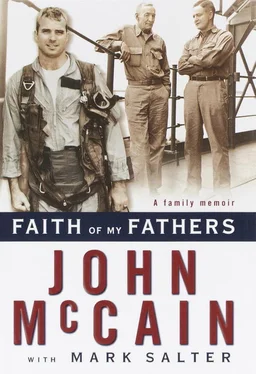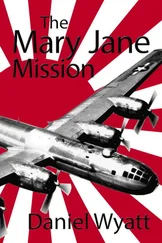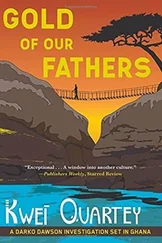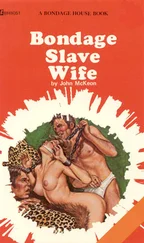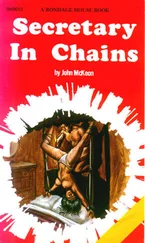As the Chief of the Bureau of Naval Aeronautics, he coordinated the design, procurement, and maintenance of naval aircraft. Coming late to naval aviation made him suspect in the eyes of career aviators, who would have preferred one of their own in command. But his success at Guadalcanal convinced Roosevelt and Forrestal that he was the right man for the job. He would rather have stayed in the Pacific. Administrative work did not suit his restless nature. A subordinate remarked that he was “an excellent fighter, but a poor planner and administrator.” Whenever he could, he avoided the interminable meetings of the various production boards he served on, Allied conferences, and other planning discussions, designating a subordinate to attend in his place. He was, it was said, a frequent figure at the Army-Navy Club, where he indulged his love of pinochle. But if deskwork and its attendant bureaucracies bored him, he was, nevertheless, a man who took pride in accomplishing the objective of his mission. He showed, if not great attention to detail, his usual abundant energy in pursuit of his chief objective, to procure the world’s greatest naval air force.
His experiences at Guadalcanal had taught him what the Navy needed in the Pacific. Too few planes and too few men to fly them had forced the pilots under his command to fly constantly, and they had been reduced to a state of near lifelessness by the strain. When he arrived in Washington, he declared, “I want enough planes for the United States Navy and enough pilots to fly them.” He wanted two crews for every plane in the Navy. And he charged ahead procuring aircraft and personnel at a lightning pace. One observer likened him to a “little fighter plane trying to get at the enemy, darting and sweeping through the rambling Navy building.”
He ordered the production of Wildcats and Avengers accelerated, confident of the planes’ value as indispensable new instruments of war. “[They] prevented the invasion of Australia. They stopped the enemy at Guadalcanal and destroyed his airplanes at a ratio of several to one. They helped to drive him off at Midway and thus prevented the invasion of the Hawaiian Islands.” My grandfather knew how to fight the Japanese, and he outfitted the Navy for the task.
An approving Roosevelt appointed him to a newly created post, Deputy Chief of Naval Operations for Air. He was the Navy’s air boss, responsible for every aspect, human and material, of naval aviation (often catching hell from a quarrelsome Halsey for his personnel decisions). He served in that command until the pace of war in the Pacific accelerated as the war in Europe approached its end.
In August 1944, he returned to the Pacific to temporarily command Task Group 38.1, one of the fast carrier groups in the Third Fleet’s powerful Task Force 38, in preparation for assuming command of the entire task force a few months later. This was the command my grandfather had aspired to above all others; the moment, I suspect, he had waited for all his life. An obituary writer for the New York Herald Tribune wrote of my grandfather’s return to the Pacific, “In September, 1944, a minor newspaper item revealed that Admiral McCain was off to sea again. The assignment was undisclosed, but the Japanese, and then America, had not long to wait before they knew.”
He was a born leader, fit for command not because of an imposing physical presence, but because he possessed an easy, natural authority with his men, whom he seemed to understand as if he had known them all their lives. Dick O’Malley, a veteran war correspondent, considered him one of the finest, most effective leaders in the Pacific Theater. With his reporter’s practiced eye for character details, Dick was struck by the unaffected qualities that made my grandfather such a gifted commander. “Admiral John S. McCain was a very quiet-spoken man but when he gave an order in his soft, clear voice, there was never any doubt there was command in it. I always remember that Admiral McCain seemed to get his orders carried out more promptly than others and there was a puzzling feeling that those doing his bidding didn’t feel pushed by authority so much as persuaded by reason…. I remember a day when we had a hell of a time with both kamikazes and land-based fighter planes. We were on the bridge after it was over and he smiled at a young lieutenant. ‘Well done,’ he said. ‘I’m putting you in for a citation. It was a very busy day.’ That was his style: relaxed, muted and soft-voiced, but when you heard it, it made your heart beat a little faster.”
He had been in command of the task group for barely two months when the long-awaited campaign to liberate the Philippine Islands began, leading to the largest naval battle of World War II, the Battle of Leyte Gulf. A week before the campaign began, my grandfather would prove himself as brave and resolute a fighter as any of his illustrious forebears had been. And although circumstances kept him away from most of the action during the Battle of Leyte Gulf, before the guns were silent he would demonstrate again that like his old friend Halsey, he was a daring and resourceful commander, and perhaps the better tactician of the two.
In preparation for the assault, my grandfather’s fast carriers launched strikes against Japanese airfields on Formosa on October 12. Their mission was to destroy the enemy’s airpower available to defend against an attack on the Philippines. This they accomplished quite successfully, although they met with stiff resistance. Over the next two days, 520 Japanese planes were destroyed and considerable damage was inflicted on Japanese installations ashore.
The Japanese did manage a counterstrike, fiercely attacking the ships of Task Group 38.1. On October 13, an enemy torpedo plane penetrated the task group’s defense screen of fighter planes and hit the cruiser Canberra. The torpedo hit flooded the Canberra ’s engine rooms, rendering her dead in the water. Rather than sink the wounded cruiser, my grandfather ordered another cruiser, the Wichita, to take her in tow while two destroyers circled them. He then assembled a covering force composed of destroyers and cruisers from three task groups to protect the Canberra as she was towed to port.
The next day and night, Japanese planes attacked in large numbers. The cruiser Houston was torpedoed. Badly damaged, without power, and listing seven degrees to starboard, the cruiser was in dire straits. The Houston ’s skipper believed she was breaking up, and many of her crew jumped overboard. My grandfather told him to abandon ship, and ordered several destroyers to help rescue her crew. He gave orders to sink the cruiser once her crew was safe, but when he received word that her skipper thought she could be salvaged he ordered the cruiser Boston to tow the crippled Houston to safety.
Admiral Mitscher commanded the task force at the time. He had ordered my grandfather to save the cruisers if he could. In Commander Thach’s words, “Mitscher took the other task groups and got the hell out of there, leaving McCain with Task Group 38.1 alone to do the job.”
Using most of the entire task group as a protective screen, my grandfather had his ships steam ahead of the “crippled division,” which included the two damaged cruisers and their cruiser and destroyer escorts. They endured repeated fierce attack from enemy sorties, but ships’ guns and fighters from two of the task group’s light carriers managed to destroy most of the attackers. My grandfather wrote in his battle action report that until seven o’clock that evening “there were almost always bandits overhead.” All the while, planes from his heavy carriers continued to strike their targets on Formosa.
On the 15th, enemy planes again attacked, and one managed to hit the Houston with another torpedo. My grandfather had risked much to salvage the cruisers. It had taken almost eight hours to get the two ships under tow, and once that was accomplished the task group had been able to make a top speed of only two or three knots as it ran a gauntlet of Japanese air attacks. Wave after wave of Japanese planes were determined to make my grandfather’s decision to save the ships cost him dearly. Had they succeeded in finishing off either of the two cruisers, or worse, had they sunk any of his other ships, the decision to save the ships would have been regarded as a terribly costly mistake.
Читать дальше
